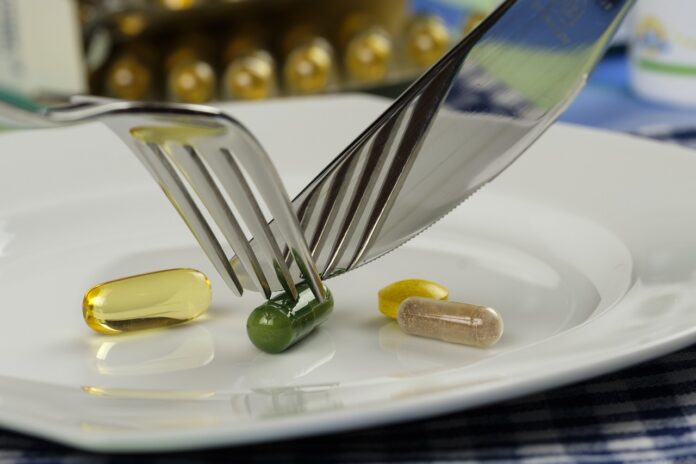Women have unique health needs that change throughout their lives, so when it comes to supplementation for overall well-being many turn to supplements as a complementary approach to leading a healthy lifestyle. But with so many available choices out there it can be overwhelming; we will cover the essential supplements for women here as well as how best to incorporate them into everyday routine.
Prior to embarking on any supplement journey, it’s crucial that women understand their basic nutritional needs. While a balanced diet remains the ideal source for essential vitamins and minerals, supplementation may sometimes be necessary due to factors like pregnancy. Some instances in which supplementation might be beneficial include:
Age: As women age, their nutritional requirements change accordingly. For instance, those over 50 may require additional calcium and vitamin D supplements to support bone health.
Pregnancy and lactation: Women experiencing gestation or lactation require higher doses of specific vitamins and minerals such as folic acid and iron to support both fetal development and breastfeeding.
Dietary Restrictions: When following a vegetarian or vegan diet, certain nutrients like B12 and iron found in animal products may need to be supplemented through supplements.
Health conditions: Some health conditions, like anemia, may require additional supplementation to address deficiencies in specific areas.
Once we have laid a solid foundation, let’s investigate some of the most vital supplements for women and their benefits.
Multivitamins can provide an easy and cost-effective way to satisfy all of your nutritional needs. Most multivitamins provide an array of essential vitamins and minerals – such as A, C, D, E, K and B-complex vitamins; plus calcium magnesium and zinc minerals – providing support for overall health and well-being.
Vitamin D is essential to strong bones, strong immune systems and overall wellbeing. Women often have low levels of vitamin D due to reduced sunlight exposure or lifestyle factors; taking a vitamin D supplement in winter months or having limited sun exposure may help increase levels and keep them at an appropriate level.
Calcium is essential to building strong bones and avoiding osteoporosis, an increasingly prevalent condition among women. If dairy consumption falls short or you suffer lactose intolerance, calcium supplements can be particularly helpful; it should be noted, though, that best absorption occurs when combined with vitamin D supplements.
Iron is essential for women of all ages, but particularly those experiencing heavy menstrual bleeding. Iron supplements can be taken to treat anemia caused by low iron stores in pregnant women and help ensure optimal fetal development. Before beginning to take iron supplements it’s advisable to consult with a healthcare provider as excessive dosage could cause side effects.
Folate (Folic Acid)
Folate, also known as vitamin B9 or folic acid, is essential for women of childbearing age in preventing neural tube defects during gestation. Pregnant women as well as those planning to become pregnant should take folic acid supplements as prescribed by their healthcare provider.
Omega-3 Fatty Acids. Omega-3 fatty acids found in fish oil supplements provide women with many health advantages. Omega-3s can reduce heart disease risk, promote brain health and alleviate symptoms associated with polycystic ovary syndrome (PCOS). Furthermore, omega-3s possess anti-inflammatory properties which could prove invaluable for women suffering from conditions like rheumatoid arthritis.
Probiotics
Probiotics are beneficial bacteria that promote gut health. A healthy gut can not only aid digestion but can also have positive ramifications on immunity and mental wellbeing. Supplementing with probiotics may be particularly useful if you are taking antibiotics or have compromised immune systems.
Magnesium
Magnesium plays an essential role in over 300 biochemical reactions throughout the body and is essential for muscle, nerve, bone, and heart health. Many women do not consume enough magnesium through their diet alone, so supplementation may be a useful addition for overall wellness.
Biotin, a B-vitamin, has long been recognized for its beneficial properties when it comes to hair, skin, and nail health. While biotin deficiencies are uncommon, some women choose to supplement with it to aid their beauty regimens – though it’s best to seek professional advice prior to beginning any new supplement regimen.
Supplements can be an integral component of women’s overall health and wellness regimes, yet should never replace eating a well-rounded diet. Each person’s needs differ, so any new addition should first be discussed with a healthcare provider to make sure it will benefit you personally and safely.
Utilizing supplements effectively with healthy eating and regular exercise is one of the key ways for women to address their individual nutritional needs and maintain optimal well-being throughout life. Be informed, prioritize self-care and select supplements suited to your personal journey to wellness.











